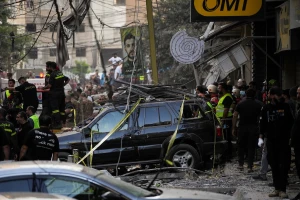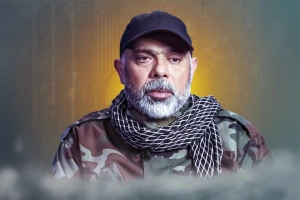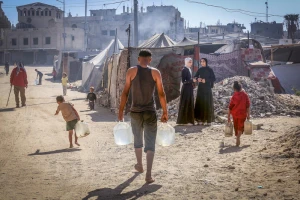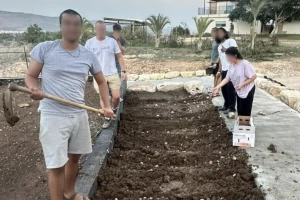Hezbollah’s slain military chief Tabatabai led terror group's rearmament efforts despite Israeli airstrikes - report
Tabatabai used deep and decade-long terror experience to rebuild Hezbollah
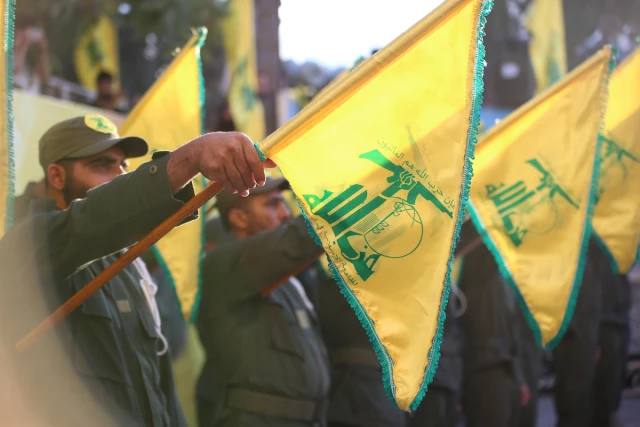
Hezbollah’s slain military chief, Haytham Ali Tabatabai, was the key figure leading the group’s rearmament and rebuilding efforts after last year’s war with Israel, according to a report by the Wall Street Journal (WSJ).
The report underlined statements made by the IDF after it eliminated Tabatabai in Beirut’s Dahiyeh neighborhood, where most of the other senior Hezbollah leaders met their end in Israeli airstrikes over the past two years.
“At the end of Operation 'Northern Arrows,' Tabatabai was appointed Hezbollah’s Chief of General Staff, and in this role he led efforts to rebuild the organization. He commanded most of Hezbollah’s units and worked extensively to restore their readiness for war with Israel,” the military said at the time.
Tabatabai was one of the last remaining operatives from Hezbollah’s founding generation, having gathered deep knowledge and experience by first helping to establish the group, building and commanding its units in southern Lebanon, then its “Golan File” in southern Syria, and finally, training the Houthi terrorists in Yemen.
After being appointed Hezbollah’s Chief of Staff, effectively the group’s second-most important leader after Secretary-General Naim Qassem, Tabatabai focused on rebuilding Hezbollah’s southernmost units, Arab officials told WSJ.
Arab and Israeli officials told the outlet that Tabatabai managed to replace the over 2,500 operatives Hezbollah lost during the last war, ordering to operate smaller cells to make it harder for Israeli intelligence to identify them, and working on introducing a system in which unit commanders trained potential successors to prevent another loss of leadership.
Tabatabai was “the head of the whole attempt,” said Yaacov Amidror, Israel’s former National Security Advisor and fellow at the Jewish Institute for National Security of America.
“Tabatabai was the one reorganizing Hezbollah’s military leadership,” Sohaib Jawhar, a nonresident fellow at the Beirut-based Badil Institute, confirmed to Al Jazeera.
“They tried to smuggle from Syria, tried to rebuild facilities in Lebanon, training new recruits. All of that was under his command and control,” Amidror added.
According to several media reports, Hezbollah has reactivated smuggling routes and found new ways to restock on rockets, artillery, and much-needed funds, despite Israel's airstrikes aiming to prevent it.
Tabatabai was 57 years old at the time of his death and had survived two Israeli attempts on his life during the war and several others before that.
He joined Hezbollah before his 18th birthday and joined a predecessor unit that eventually became the Radwan Force, whose main task was to plan and train for an invasion of northern Israel.
He rose to lead Hezbollah’s Nabatieh region during the Israeli occupation of southern Lebanon, from 1996 until the Israeli withdrawal in 2000. He then took over the Khiam region until 2008, commanding Hezbollah’s forces during the 2006 War.
Tabatabai was then sent to Syria during the civil war to set up Hezbollah’s “Golan File,” the group’s permanent unit in Syria. In 2015, he survived an Israeli strike in the Quneitra province that killed several key terrorists.
After being targeted in Syria, Tabatabai went to Yemen, training the Iran-backed Houthi terrorists, before returning to Lebanon several years ago.
While his elimination is widely seen as a significant blow to Hezbollah’s rebuilding efforts, Tal Beeri, head of research at Israel’s security think tank Alma Research Center, cautioned that it alone would not stop the terror group.
“The core of Hezbollah’s ideology is the ‘armed resistance’ – this is an identity that cannot be relinquished. Hezbollah is driven by honour, pride, and a deep belief in armed struggle against Israel,” Beeri wrote in a recent op-ed.
“The armed resistance – it is not a means, but an identity. Therefore, reconstruction processes are not merely an operational need, but first and foremost stem from Hezbollah’s fundamental identity. The rifle on Hezbollah’s flag is not ornamental; it is a declaration.”

The All Israel News Staff is a team of journalists in Israel.
You might also like to read this:


